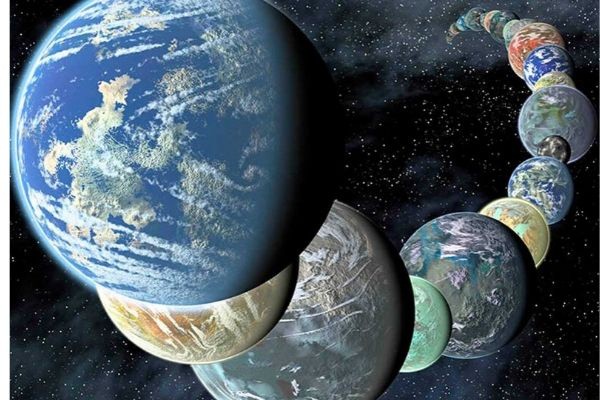
Before there was life on land, everything began with the watery solution were the first molecules formed up. It led to the creation of the prokaryotic and eukaryotic cells that evolved from steamy vats of water. One requirement for the formation of life molecules is water as the source of life, without it, a planet would be just a dead one.
Now astrophysicists are searching for new worlds that have water in abundance, but there is one big problem. It is serious enough to draw concern if future generations of terra-formers ever set foot on an exoplanet. Water is common but there might not be enough. This is a big problem because, despite the efforts of the space scientists trying to find a blue orb-like celestial body like ours, nothing is panning out.
What makes water so important is the fact that it is a necessity in sustaining cells and keeping it alive. Inside most cells, there is a liquid environment that should be maintained for without it cells will shrivel and die. Most animal can survive on water even without food.
As more radio and optical devices are set to look in space, there seems to be not enough for mankind requirements. It seems like a nail in the haystack to find an exoplanet that will offer a good place to translocate in the future. As one study notes that water is a precious commodity and the earth is an exception. Quite a compilation of data and evidence about planet forming in our solar system and other exoplanets detected by astrophysicists. Hopefully, this would shed light and more clues on where to look for an abundant supply of water.
Atmospheres of 19 planets were observed, and data from outer space, including earth-bound telescopes yielded these interesting results.
Common temperatures for these exo-worlds are from 70-degree Fahrenheit to 3630 degrees Fahrenheit, for planets smaller than Neptune to Supersized Jupiter planets that are 600 times the mass of earth. These results were calculated by Nikku Madhusudhan, an astrophysicist at the University of Cambridge in England.
Rare water vapor was detected in 14 of the 10 identified exo-planets. Finding even the slightest amount of water is important, better than none at all. One problem with giant planets is catching any water vapor at all. The astrophysicist said looking for water in our backyard is hard, but looking outward to other solar system is much easier.
Other chemicals found in the giant exo-planets are sodium and potassium - life-forming elements that were instrumental in creating life on earth. A nagging problem that recurs is the lack of water vapor in abundance in exoworlds. Low amounts of water vapor in the atmosphere is lower than expected too. When water, sodium, and potassium, are detected other life-giving elements, might not be far behind.
In large gas planets in the solar system, there is speculation on how much moisture they hold, perhaps thunders storms of a different kind exist. Sending probes like the Juno robotic spacecraft is not as easy as it looks with the technical challenges it is up against.
Finding exo-planets with bountiful water is the first step to find a new home, already more eyes are looking up to see a world with more water. Other elements like potassium and calcium will be a bonus for terra-formers of the future. For humans who are earth-bound, looking for a new planet might be more important.
Related article: There's Water on Alien Planets, Just Not As Much as Scientists Thought: Study












